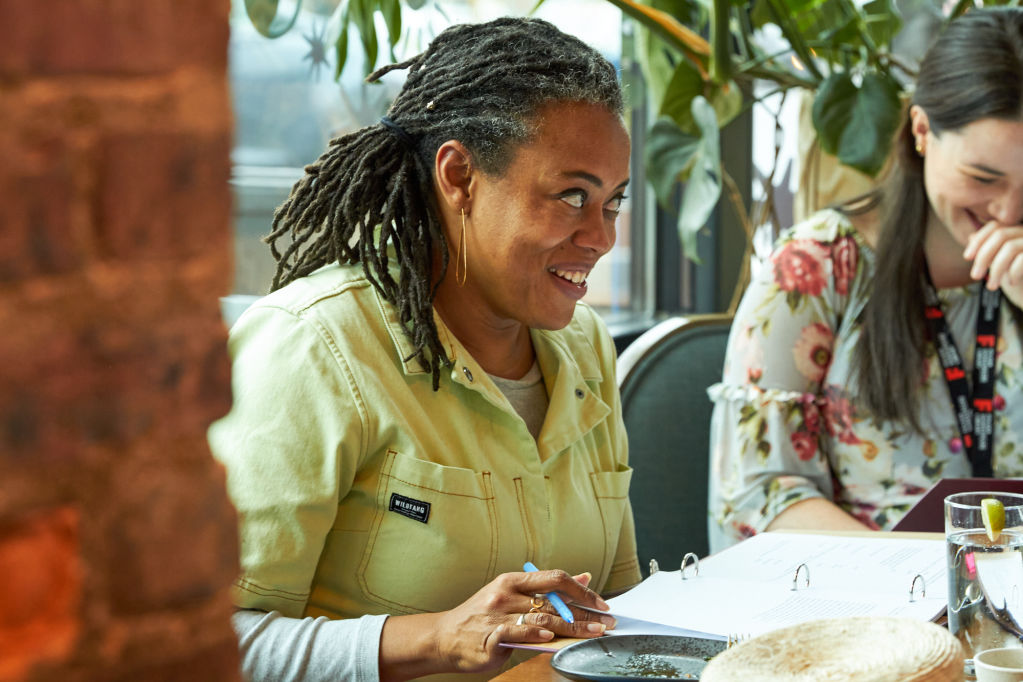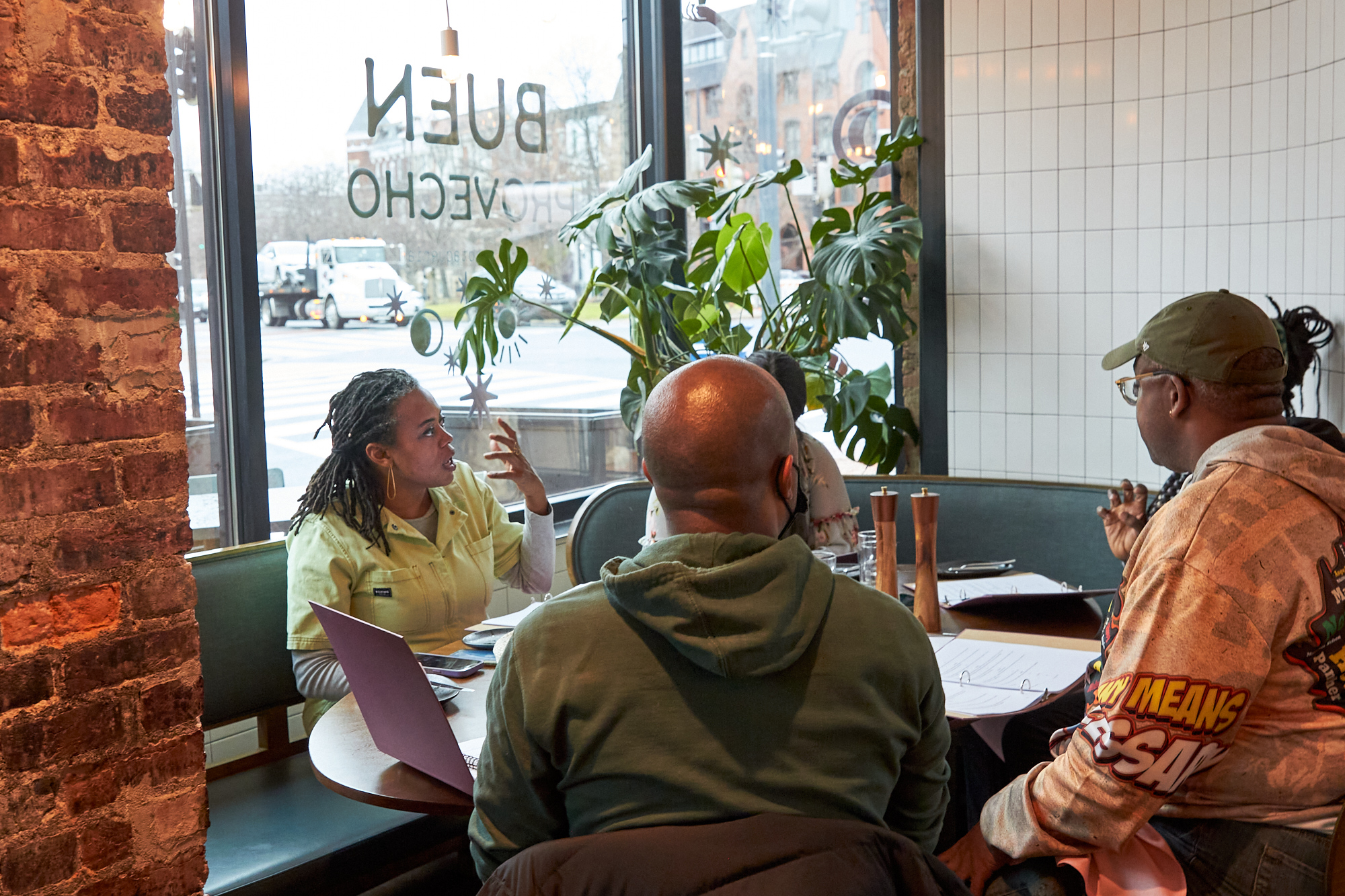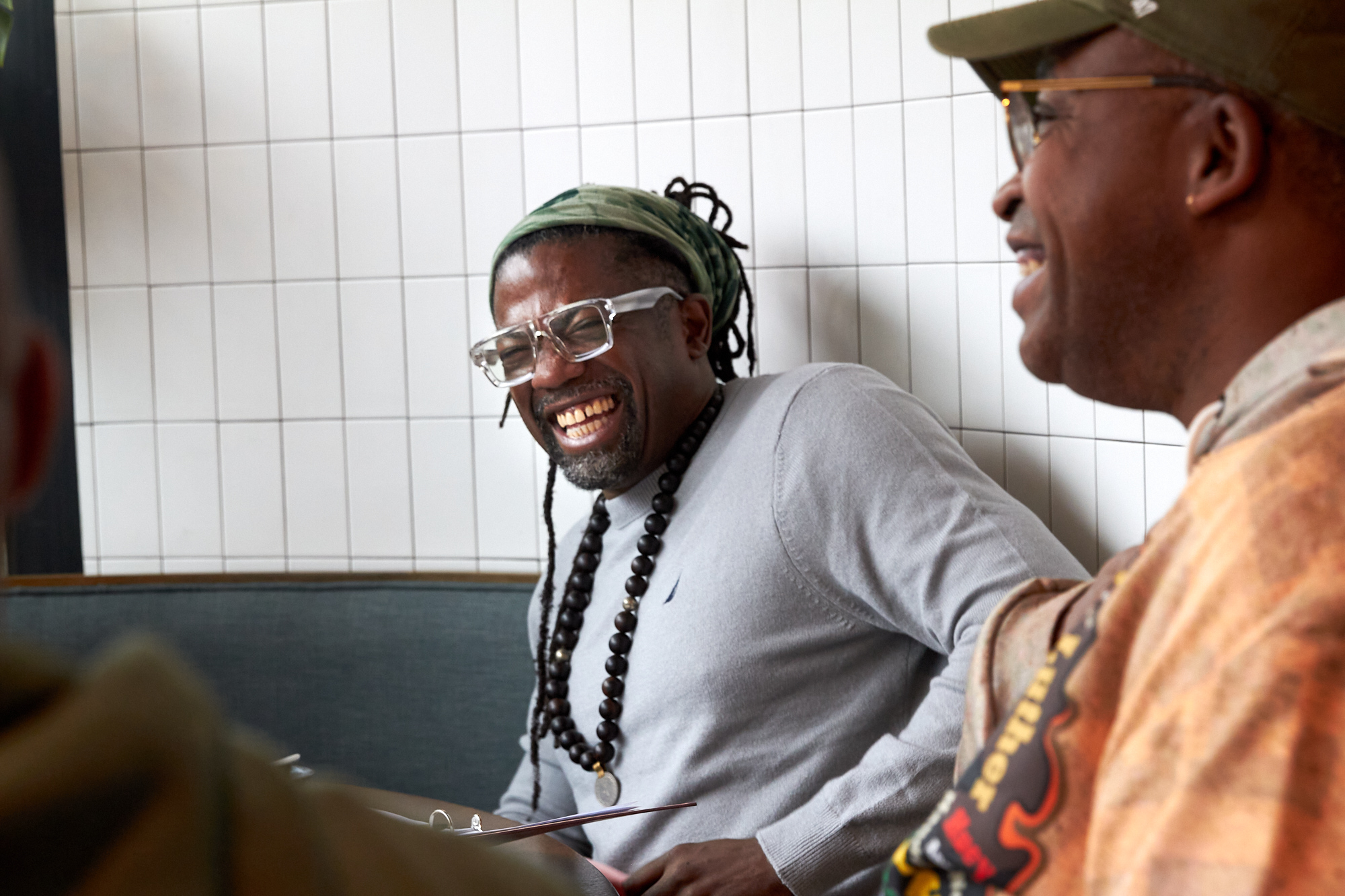Culture
 Karen Ann Daniels. Photo by Peggy Ryan.
Karen Ann Daniels. Photo by Peggy Ryan.
What’s Old Can Be Right Now: Folger Library’s Reading Room Series Showcases Plays Inspired by Shakespeare
January 19, 2023 @ 11:00am
Shakespeare, the Immortal Bard of Stratford upon Avon, was barely cold in the ground when other people began rummaging through his plays for inspiration. Over the centuries, artists of all media have used the words, plots, characters, images, and themes of William Shakespeare (who wasn’t above lifting an idea or ten from others himself) as muses.
Their creations have given new and richly varied — and ubiquitous — life to his works, as Karen Ann Daniels, the Folger Library’s director of programming and artistic director of its theater, humorously points out.
“Somebody asked what was my first exposure to Shakespeare,” Daniels says. “‘DuckTales’ I responded.”
“We’re always pulling from him,” Daniels continues. “We can look at love and language and identity and politics through so many of his plays. Now that we’re struggling with the newest iterations of those ideas, Shakespeare can open up to something we didn’t expect.”
To this end, Folger launches a new play reading series, The Reading Room, from January 19 through January 21 at The Lutheran Church of the Reformation. A roster of artists and projects will explore legacy, power, collaboration, inherited wisdom and trauma, poetry, and more through original works inspired by good old Will. Conversations with artists and scholars weave throughout the weekend.
District Fray: Folger is known for its staggering collection of books, manuscripts, artifacts and more dating back to Shakespeare’s day. Where does this expansion into new works come from?
Karen Ann Daniels: At first, I started thinking, ‘How do we begin bringing more interpretations to the collection? How do we get a variety of people to come in and start playing and thinking about Shakespeare, who he is today, at this moment, and going forward?’
As a culture we constantly rediscover Shakespeare, and we’re in this amazing moment to think about whose voices, whose stories are leading that discovery. There’s an opportunity at the Folger to bravely explore Shakespeare in ways that resonate with different perspectives, with artists deeply, deeply inspired by Shakespeare.

From L to R: Karen Ann Daniels, Devin E. Haqq, John Proctor III. Photo by Peggy Ryan.
Folks can read the descriptions of each new work, on the Folger website. Can you talk a little about where each project came from?
We wanted to look around the country to see who is really thinking about this work, and what institutions are creating this work. I’m interested in developing work for the field and evolving the conversation beyond our walls.
Cincinnati Shakespeare commissioned Lauren Gunderson and approached me about directing. Talking with their artistic director Brian Phillips, what Lauren was trying to do in “A Room in the Castle,” pointing the light on the women [of “Hamlet”], started to resonate with me. And with what just happened over at the Supreme Court [a block from the Folger].
Language is a huge consideration when you’re doing Shakespeare. That was in my mind, my heart when I ran into Reynaldo Piniella last year at a conference. When we started talking, I was like ‘Wait! This is what I’m looking for.’ His bi-lingual “Hamlet” [adapted with Emily Lyon] looks at language and identity from a Black, Latinx perspective. He wants to deal with an identity that oftentimes feels like ‘I’m not enough of one. I’m not enough of the other,’ and those intersections of identity as they pertain to language and culture.
[For “Julius X”], my sister is an avid podcast listener. One day we’re talking when she mentions Al Letson and his podcast “Mississippi Goddam.” I’m googling madly as she continues about a play he wrote about Julius Caesar. I get my hands on this play, read it, and I’ve been talking with him since then. He’s also exploring the intersections of identity, in his case that Blackness is not a monolith. Post-George Floyd and the start of Black Lives Matter, it feels very relevant to what Letson’s experiencing right now.
“Our Verse in Time to Come,” [written by Daniels and Malik Work in collaboration with Devin E. Haqq], came out of a conversation about how we commemorate the 400th anniversary of “The First Folio” when our building is closed [for renovations]. That led us to ideas about what stories remain and who gets to decide. That play didn’t exist out there, so we decided to commission it. I ended up talking with Malik Work, who I’ve worked with prior, who’s really good at hip hop and Shakespeare, a teacher and a dynamic performer. It’s really a work in progress (laughs), but I think we’ll tour it at some point. It’s exciting. It’s got a DJ.

From L to R: Malik Work. John Proctor III. Photo by Peggy Ryan.
Do you see any commonalities in how artists are responding to Shakespeare right now?
People sometimes see themselves reflected in Shakespeare and sometimes they are responding to what they don’t see reflected in Shakespeare. Our culture has elevated him for many good reasons, but he’s also utilized in many troubling ways.
There’s also a wrestling going on with students as they’re coming into university theater programs. They’re wrestling with whether this playwright is for them, and I think everyone needs the space to decide for themselves.
Speaking of ‘space,’ any updates on the Folger renovation?
I just took a tour of the construction and the progress. You can kind of see in your mind’s eye where things are going to land. The room is there and it’s almost ready for the next step.
The Reading Room runs January 19 through January 21 at The Lutheran Church of the Reformation, 212 East Capitol St. NE, DC. For tickets and more information, click here.
Folger Shakespeare Library: 201 E Capitol St. SE, DC; folger.edu // @folgerlibrary
Enjoy this piece? Consider becoming a member for access to our premium digital content. Support local journalism and start your membership today.







